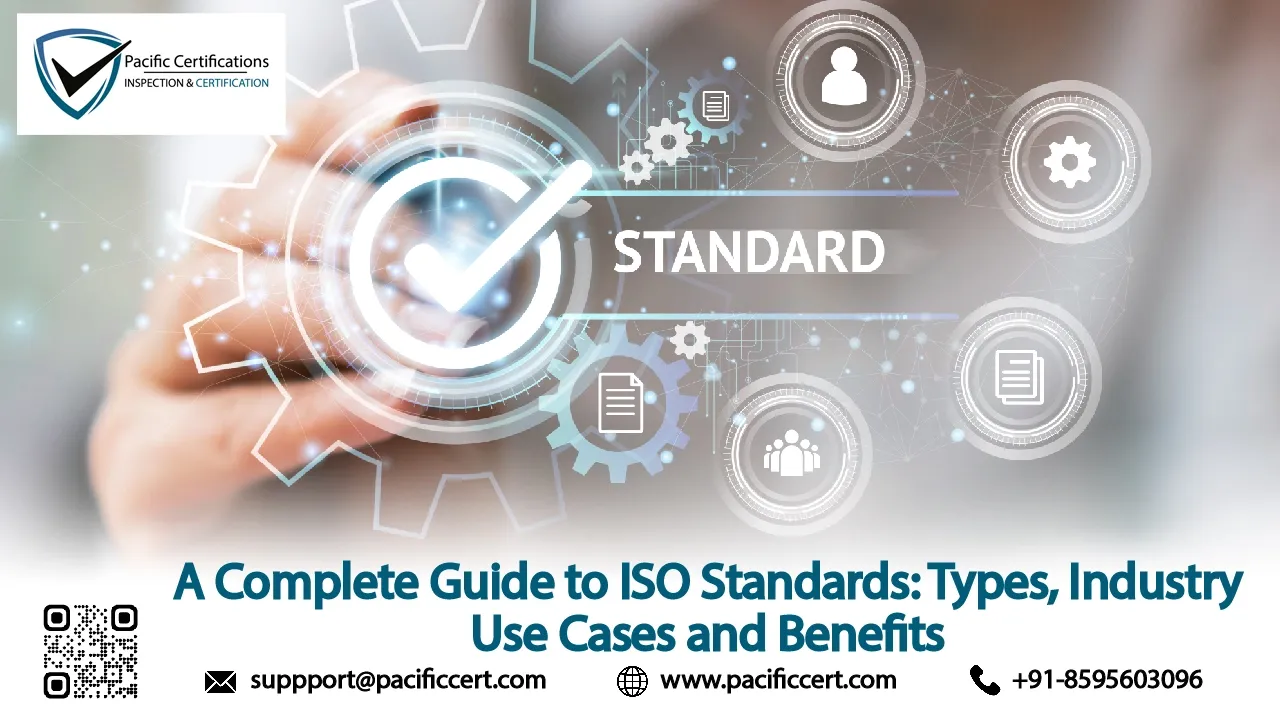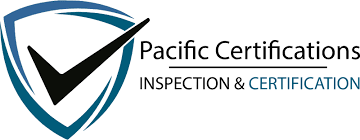A Complete Guide to ISO Standards: Types, Industry Use Cases and Benefits

Introduction
ISO standards are international guidelines that support organizations in developing their operations and ensuring quality throughout an organization, ensuring safety and/or improvements in efficiency in various industries.
ISO standards provide a structured framework for organizations to implement improvement processes, which help ensure consistency, customer satisfaction, and compliance with regulatory industry standards.
This blog will cover the types of ISO standards, an overview of possible industry use cases and some corresponding benefits associated with their adoption to your organization.
For assistance, contact us at [email protected].
Introduction to ISO Standards
ISO (International Organization for Standardization) develops internationally recognized standards that guide organizations in delivering consistent quality, managing risks, protecting the environment, and ensuring safety. ISO has published more than 25,000 standards, covering sectors from manufacturing and healthcare to energy, IT, and food safety.
For modern organizations, ISO standards are strategic tools that support efficiency, credibility, and market access.
ISO standards are the common language of trust in global business — they ensure safety, quality, and reliability across borders and industries.
Types of ISO Standards
There are several ISO standards designed to meet specific industry needs. Some of the most widely recognized ISO standards include those that focus on quality management, environmental management, and information security. ISO standards are categorized into broad types depending on their focus:
Category | Purpose | Examples |
|---|---|---|
Quality Standards | Ensure products and services meet customer and regulatory expectations. | ISO 9001, ISO/TS 16949 (automotive), ISO 13485 (medical devices) |
Environmental Standards | Reduce environmental impact and promote sustainability. | ISO 14001, ISO 50001, ISO 14064 (GHG emissions) |
Health & Safety Standards | Protect employees and improve workplace safety. | ISO 45001, ISO 22000 (food safety) |
Information Security & Technology Standards | Secure data, IT systems, and digital infrastructure. | ISO/IEC 27001, ISO/IEC 20000-1, ISO/IEC 42001 (AI management) |
Sector-Specific Standards | Address unique industry requirements. | ISO 29001 (oil & gas), ISO 21101 (adventure tourism), ISO 17100 (translation services) |
Compliance & Governance Standards | Guide ethical behavior and risk management. | ISO 37001 (anti-bribery), ISO 31000 (risk management) |
ISO 9001: Quality Management Systems (QMS)
As one of the largely adopted standards, ISO 9001 focuses on organizations ensuring the consistent provision of products and services that meet customer and regulatory demands. It assists organizations in improving their processes, enhancing their efficiency, and maintaining high customer satisfaction. It describes the requirements for a quality management system and suggests that an organization define its objectives, monitor its performance, and work continually to improve its system.
From a practical perspective, ISO 9001 is used through industries to streamline production, improve customer experiences, and keep inefficiencies to a minimum. Companies in all sectors, whether service providers or manufacturers, adopt this standard to ensure they keep high-quality products and services.
ISO 14001:2015 Environmental Management Systems (EMS)
Through ISO 14001, companies manage their environmental impact. ISO 14001 places emphasis on decreasing the environmental footprint of an organization while also ensuring regulations are adhered to and discouraging unsustainable business activities. ISO 14001 provides companies with a means to minimize pollution and waste while promoting energy conservation and the responsible use of resources within their operations.
ISO 14001 is used by companies in the manufacturing, construction, and retail industries to put in place environmental regulations, comply with the existing ones, and gain some competitive edge in the market by promoting sustainability.
ISO/IEC 27001: Information Security Management Systems (ISMS)
ISO/IEC 27001 concerns itself with protecting sensitive information by a body of controls establishing an ISMS. That is, a standard to assist organizations in safeguarding data and IT systems with respect to confidentiality, integrity, and availability of information. It thus concerns itself with risk management, data protection, and cybersecurity.
Industries such as finance, healthcare, or technology would adopt ISO/IEC 27001 for the purpose of protecting customer data, complying with data protection laws (such as GDPR), and preventing any cyberattacks or data breaches. Such standards would prevail especially for an organization handling sensitive or personal data.
ISO 45001: Occupational Health and Safety (OH&S)
ISO 45001 will guide you in setting up a safe working environment, thus eliminating risks at the workplace and, hence, preventing occupational accidents or illnesses. It emphasizes managing health and safety risks and improves the general well-being of workers. This standard enables organizations to ensure compliance with health and safety legislation and instils health as a culture basis within the organization.
Industries such as construction, manufacturing, and healthcare implement ISO 45001 to protect their workforce, reduce absenteeism, and ensure legal compliance. The standard encourages continuous monitoring of health and safety practices, fostering an environment where employees feel safe and valued.
ISO 50001: Energy Management Systems (EMS)
ISO 50001 assists organizations in managing and optimizing energy consumption to improve energy efficiency and lower energy cost. The standard provides a framework to help organizations establish an Energy Management Systems (EMS) that will help the organization to lower energy use and help the business to lower its environmental impact.
Organizations within the manufacturing, utilities, and commercial buildings sectors adopt ISO 50001 to improve energy performance, lower operational cost, and contribute to sustainability goals. It is very relevant for organizations that are operating energy-intensive facilities and trying to meet regulatory energy performance requirements.
ISO 22000: Food Safety Management Systems (FSMS)
ISO 22000 is created for organizations within the global food industry which describes what needs to happen to ensure the safety of consumers along the food chain. While maintaining and being compliant with food safety regulations, ISO 22000 ensures that food is produced, processed, and delivered within a food safety framework that protects consumers from foodborne illnesses.
Organizations involved with food production, packaging and food distribution use ISO 22000 for the protection of public health, understanding the need to ensure/meet regulations, and consumer assurance that they were getting a safe food product to consume.
Click here to find out more applicable standards to your industry
Industry Use Cases for ISO Standards
ISO standards are not just theoretical guidelines; they have practical applications across various industries. Below are some examples of how ISO standards are used in specific industries:

Industry | Key Standards | Use Cases |
|---|---|---|
Manufacturing | ISO 9001, ISO 14001, ISO 45001 | Quality control, worker safety, and sustainable production. |
Healthcare & Pharma | ISO 13485, ISO 27001, ISO 22301 | Medical device quality, data security, and business continuity. |
Food & Hospitality | ISO 22000, HACCP, ISO 10002 | Safe food handling, hygiene, and customer complaint management. |
Information Technology | ISO/IEC 27001, ISO/IEC 20000-1, ISO/IEC 42001 | Information security, IT service management, and ethical AI. |
Energy & Utilities | ISO 50001, ISO 14001, ISO 22301 | Energy efficiency, environmental management, and resilience. |
Construction & Real Estate | ISO 9001, ISO 45001, ISO 14001 | Quality assurance, worker safety, and sustainable building practices. |
Finance & Banking | ISO 27001, ISO 22301, ISO 31000 | Cybersecurity, continuity planning, and enterprise risk management. |
Manufacturing
The purpose of ISO 9001:2015 in manufacturing is to guarantee that specific manufacturing processes are followed routinely, which results in consistent product quality. For example, ISO 14001:2015 provides a framework for organizations to manage their environmental impact by managing waste, water and energy use. ISO 45001 (in terms of manufacturing) is directed to the management of employee health and safety to reduce injuries. All these standards working together can assist manufacturers in improving operational effectiveness, in reducing business risk and in complying with an increasingly regulated world.
Health Care
In health care, ISO 13485 ensures that medical devices are manufactured in accordance with quality and regulatory standards. ISO/IEC 27001 sets forth compliance requirements for the storage, transmission and security of patient data. In the common ISO 45001 example, ISO reinforced measures can be taken to manage employee health and safety risks. These are even more applicable in high-risk settings like hospitals and clinics. All of these standards help to improve the delivery of health care services, improve patient care, and ensure health care organizations are compliant with a plethora of regulations and quality requirements.
Food and Beverage Sector
The food and beverage sector is dependent on ISO 22000 and the food safety procedures within the organization's supply chain. ISO 14001 provides the organization with an opportunity to reduce their environmental impact in food preparation and packaging, while ISO 45001 assures a safe workplace for employees within food preparation workplaces. ISO 22000, ISO 14001 and ISO 45001 allow organizations to meet consumer requirements, comply with food safety laws, and improve operational effectiveness.
What are the requirements of common ISO Certifications?
To achieve an ISO certification, organizations must implement management systems aligned with the chosen standard, supported by documentation, training, and regular audits. Below are some of the key benefits:

- Establish policies and objectives aligned with the chosen ISO standard.
- Define the scope of operations and identify applicable regulations and customer requirements.
- Conduct risk assessments to identify gaps, hazards, and improvement areas.
- Document processes, controls, and monitoring procedures.
- Train employees to ensure competence and awareness of compliance obligations.
- Maintain records of audits, inspections, corrective actions, and performance indicators.
- Carry out internal audits and management reviews to evaluate system effectiveness.
- Undergo an external certification audit by an accredited certification body.
What are the benefits of common ISO Certifications?
ISO standards provide operational, commercial, and reputational benefits that help organizations remain competitive.
Better quality assurance leading to fewer errors and greater customer satisfaction.
Stronger compliance with legal, regulatory, and industry requirements.
Safer workplaces with reduced risks and incidents.
Reduced environmental footprint through energy and resource management.
Improved risk management and business resilience against disruptions.
Enhanced trust from customers, regulators, and partners.
Increased access to new markets and supply chains where certification is expected.
Cost savings from streamlined processes and reduced inefficiencies.
Market Trends
The global ISO certification market is expanding steadily as industries face new risks and regulatory demands. The market for management system certification is projected to surpass USD 5 billion by 2030, growing at over 8% CAGR. Rising cybersecurity threats, stricter ESG reporting, and supply chain vulnerabilities are fueling demand for ISO/IEC 27001, ISO 14001, and ISO 22301 certifications.
Sustainability and digital transformation are major drivers: organizations are increasingly adopting ISO 50001 for energy efficiency and ISO/IEC 42001 for AI governance to address emerging challenges. Today, certifications are critical enablers of business growth and investor confidence.
Contact Us
Pacific Certifications can guide your organization through the process of ISO certification and help you select the right standard for your business. Our expert team will assist you in implementing ISO standards, ensuring compliance, and achieving certification.
For assistance, contact us at [email protected].
Visit our website at www.pacificcert.com.
Ready to get ISO certified?
Contact Pacific Certifications to begin your certification journey today!
Author: Alina Ansari
Suggested Certifications –
Read more: Pacific Blogs

